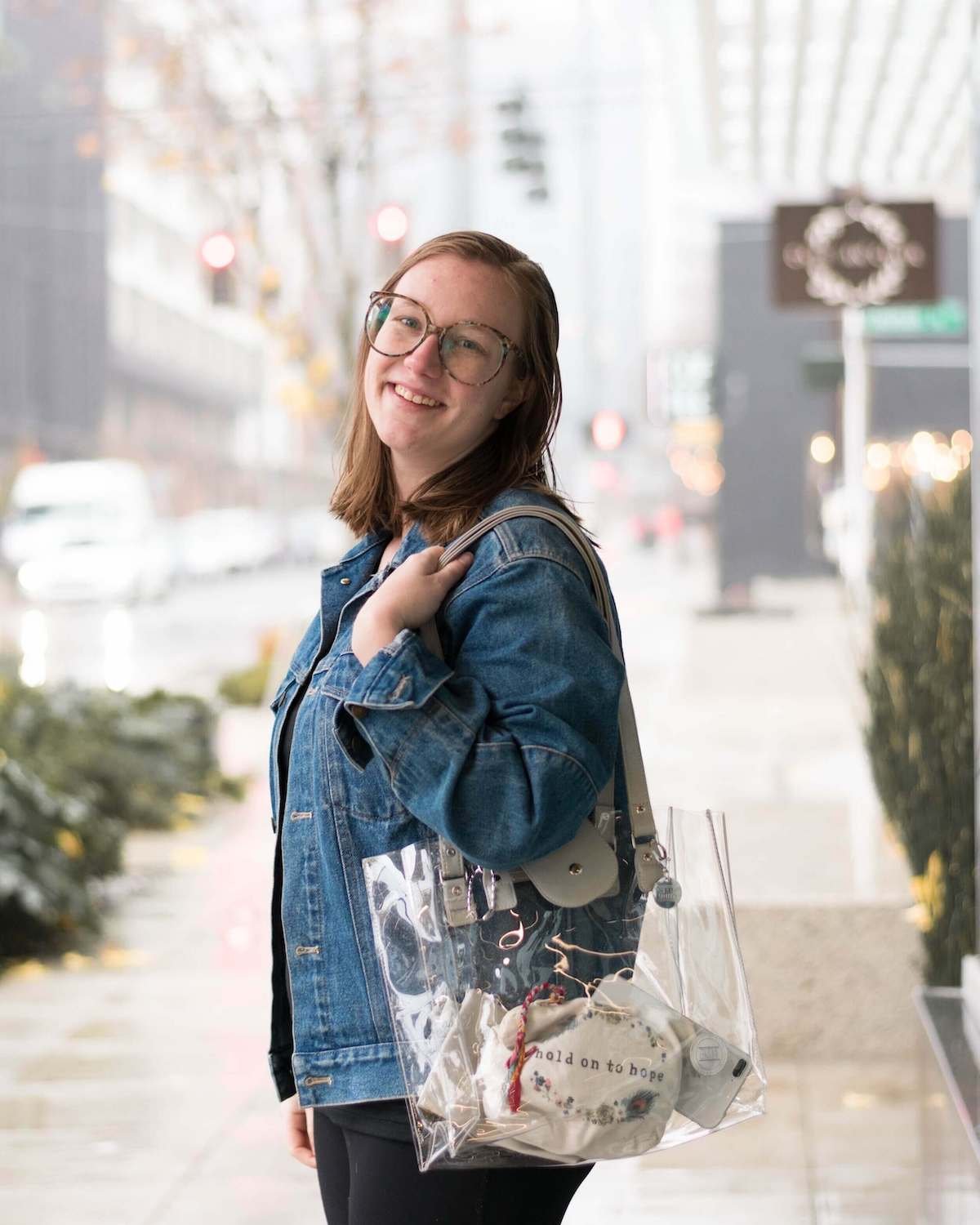How to Easily Be an Imperfect Conscious Consumer
Some consumers get intimidated by the idea of conscious consumerism because of the pressure that there is a “correct” way. Being a mindful consumer isn’t about doing everything 100% perfectly.
Imperfect thoughtful consumerism is what we need more of!
Everyone is at a different point in their conscious lifestyle journey and if you’re doing something, you’re making a difference.
In this guide I’m sharing a bit about my own journey and shifts I’ve made to become a more ethical shopper.
We’ll discuss what conscious consumerism means to me and I’ll list four EASY ways to become a more mindful consumer TODAY!
What Does Conscious Consumerism Mean to Me?
To me, conscious consumerism is all about being aware of the impact of the item you’re buying. Conscious consumerism can take place in just about any industry.
For example in fashion we often focus on ethical and sustainable fashion by considering how our clothes impact the environment and the garment workers.
Conscious consumerism practices in food are widely known as shopping local farmers markets or buying organic to support sustainable farming practices and decrease the environmental impact these food purchases have on the planet.
A few questions conscious consumers might ask themselves include:
How will this item bring value to my life?
Was the person who made this item paid a livable wage?
How did this item impact the planet?
What was the carbon footprint of this item?
Were the people who made this item treated with respect and provided a safe working environment?
How long will this item last me?
Am I a Conscious Consumer?
Being a conscious consumer doesn’t have to mean every piece in your closet coming from an ethical clothing brand. It doesn’t have to be about limiting yourself to only ten minimalistic pieces.
It doesn’t have to be only buying organic clothing. And it certainly doesn’t have to be about doing all of the above.
It can be as simple as valuing what you have, shopping secondhand, avoiding fast fashion brands, or limiting impulse buys. The depth of your conscious consumer journey is up to YOU!
Try not to get too focused on being a perfect consumer and making too many changes at once.
Even by focusing on one of the characteristics I listed above you’re making a positive impact!
The Fashion Industry Makes Me Feel Like I’m Doing Conscious Consumerism Wrong
Quite often I see ethical fashion bloggers and influencers post wardrobes like the one pictured below.
A perfectly curated clothing rack of ten or so items at first it made my feel like I was doing this conscious consumerism thing wrong, but now after years in the ethical fashion scene it makes me laugh.
I’ve accepted that will never be my wardrobe and that’s okay. My closet is a hot mess. I have a lot more than ten pieces of clothing in my wardrobe.
I like supporting ethical clothing brands that are making positive change and it keeps my wardrobe exciting. Minimalism isn’t really my style….I love fun prints and bold colors.
I practice conscious consumerism by supporting ethical clothing brands, valuing what I have, avoiding fast fashion brands, limiting impulse buys, and educating others on the various options they have to make a difference. And those are some of the characteristics that make me a conscious consumer.
Your mindful consumption journey is unique from the journey of others! If a minimalistic capsule wardrobe works for you then kudos to you! Keep it up!
And if it doesn’t….if you’re like me and you’re more of a hot mess closet type of gal that’s perfectly okay too! Everyone can be a conscious consumer in their own way!
4 Easy Ways to Be a More Conscious Consumer
These are a few easy and quick ways I started becoming a conscious consumer! I hope they’re useful to you too!
Pin this conscious consumer guide for later!
Value what you have!
This free practice can help you cut down on impulse purchases and appreciate the items you currently have in your home. This can be a great practice specifically with fashion.
Rediscover the wardrobe you already have in your closet and think of new ways to style and accessorize instead of going out to buy a new outfit.
Keep your eyes out for the easy to spot labels!
Ethical shoppers can easily spot third party labels such as Certified B Corporations, Fair Trade Federation, and Fair Trade USA. These labels are a quick and easy way to know a brand values transparency and focuses on social impact.
These are commonly found on clothing labels AND food labels! You can easily consider finding some fair trade coffee or chocolate as a simple swap to make grocery shopping a bit more socially responsible.
Shop local and shop small businesses!
Consider purchasing produce from your local farmers market, gifts from a neighborhood craft fair, and clothes from your local boutique or secondhand store.
This is great because it supports the local economy, supports entrepreneurs in your neighborhood, and reduces the carbon footprint of shipping all the goods directly to you.
Don’t be afraid to ask questions.
A huge part of being a conscious consumer is continuously learning and asking questions. It’s wonderful to ask questions not only for your own knowledge, but also to educate the brands.
If name brands start seeing that consumers are demanding to know where/how their products are made, this can encourage more transparency from the brand.
Hopefully this guide inspired you that conscious consumerism can be fun and given you a few easy ways to take part!
This post was written early on in my journey in 2019 and recently updated in 2024!
Other Helpful Conscious Guides:
For more tips & tricks on sustainable living be sure to follow The Honest Consumer on social media, subscribe to our newsletter, & check out the Ethical & Sustainable Brand Directory.




